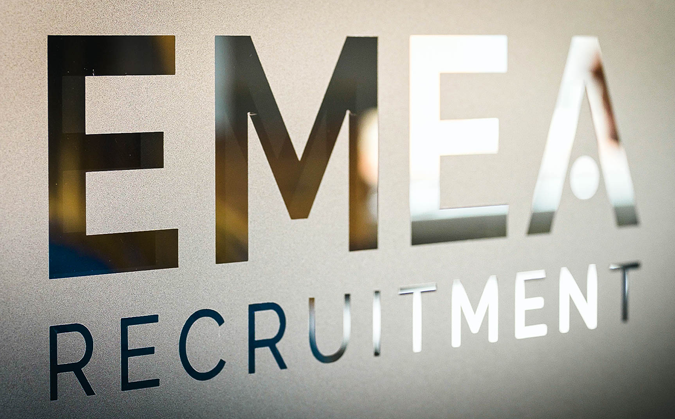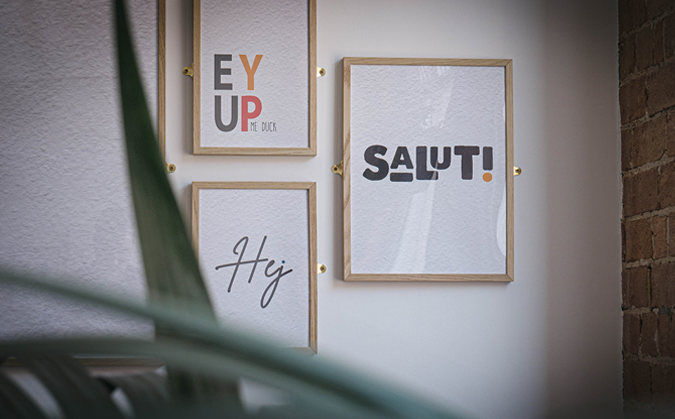Matthieu Derome - Worldwide Head of Quality, Sustainability, Safety, Health, Environment and RD&E at Tupperware Brands

Matthieu Derome is the Worldwide Head of Quality, Sustainability, Safety, Health, Environment and RD&E at Tupperware Brands.
Matthieu has 25 years of operational and strategic Supply Chain management experience, from production floor to Corporate functions in four different industries: plastic with Tupperware Brands, pharma with J&J and Alcon, chemical with ECOLAB, and cosmetic with P&G.
Matthieu managed increasing Manufacturing, Production and Maintenance teams before moving to more functional and strategic roles in Continuous Improvement/Lean Six Sigma, Quality, Sustainability and EHS.
What motivates Matthieu is to:
- lead his team in culture, process and organization transformation
- define and execute strategic worldwide programs, while ensuring local adoption and execution
- accelerate results and deliver products, organizations and process improvements
Matthieu holds an MSc in Engineering, an INSEAD MBA and is also black belt trained.
The views expressed are personal and do not represent Tupperware's views.
In your opinion, to what extent will sustainability become a business’ imperative?
Between the pandemic, the ever-more expanding and expensive natural disasters, George Floyd’s death, there has been more change in society’s expectations of business in the past three years than in the previous 20. Corporate leaders can no longer sit on the side line of the sustainability journey. Even if COP26 was not seen as a success, climate change and sustainability are now becoming critical agenda points.
In addition, many companies are proving that an Environmental, Social and Governance (ESG) approach is making good business sense and seeing that sustainability brings value with the following dynamics amongst its stakeholders: shareholders are asking for increased sustainability transparency; consumers want to do good; employees are looking for a purpose; and 80% of the ESG funds have outperformed their benchmark in 2020.
What a change compared to couple of years back, where the sole purpose of business as written by Milton Friedman was to maximize shareholder value. Nowadays, as you say, the new business imperative is to serve the multiple stakeholders, which then would benefit investors. This is what sustainability (or ESG) is all about.
What does your organisation do to drive its sustainability agenda?
First, sustainability has been, from its inception, at the core of Tupperware. Our durable products that are reducing food waste are, by definition, very sustainable products, and we have always leveraged that positioning. We issued our first sustainability report in 2012.
However, clearly, the increasing discussions about single use plastic pollution accelerated our interest in sustainability. As such, several initiatives were started to improve our offering: we launched a Recycline line to make new Tupperware from the old ones. We launched, in partnership with SABIC, the first food contact durable product made with recycled plastic, thanks to their molecular recycling process.
With our new management coming on board in 2020, ESG has been defined as a key strategic focus. We have reorganised our ESG governance, with stronger board involvement and guidance together with the Executive Committee leading the initiative and being the sponsor. We also now have defined five strategic pillars that are driving identified projects which are supported by an ESG steering committee. The pillars identified are: products, supply chain, social impact, associate engagement and governance. Each pillar has clear deliverables that will drive us toward a clear ESG leadership position.
In addition, we took a step back by performing a Materiality Assessment to review with internal and external stakeholders what is important for our stakeholders in terms of ESG and what we should we be focusing on. This has significantly helped internally aligning the organisation on what sustainability means for Tupperware.
Lastly, together with the Executive Committee, we have updated our targets for 2025 and 2030 to take into account the last strategic decisions validated by the board.
Frankly, this is an exciting journey!
How important is it that sustainability and innovation work hand-in-hand and how do you incorporate the two areas together?
First of all, I do not consider that the two are on the same level. Sustainability, like quality or safety, is a value. It needs to be adhered to and cannot be owned by one department doing everything and getting all the recognition. Progress along this value is critical, but needs to be owned by the various parts of the business. The role of a sustainability organisation, in that regard, is to provide the score, the support and the systems.
Innovation is a way to get to those results. And clearly, without new thoughts, new approaches, new technologies, i.e. innovation, we would not be able to reach any targets and stay below the +1.5°C objective of the Paris agreement.
In that regard, technical innovation to increase green energy and reduce our consumption will be key, but can only be driven by the people on the manufacturing floor, looking for solutions and being innovative in their approach.
What would be your advice to a company that wants to start its ESG journey?
Great question! I would have to restart now; I would start with setting up the governance process and perform a materiality assessment: ESG and sustainability is having such a wide scope that it is important to define where to play and what is material first.
An oil and gas company will not play the same way as a retailer or an NGO. The United Nations Sustainable Development Goals (UN SDG) are a great way to structure your thoughts and to approach your stakeholders.
Once you have identified where you want to play, you need to define what you want to achieve, accepting that you might not know 100% how to attain the set goals. This would force the organisation into action and focus them on solutions, rather than over-thinking, knowing that you would need to accept to adjust those goals along your journey.
What are the skills that you think make a Supply Chain leader stand out in the current environment?
Even though it might be counterintuitive, the first skill that is coming to my mind for a Supply Chain leader to stand out is humility. This is mainly for two reasons.
First of all, in most industries, despite its importance, Supply Chain is not the place where the company as a whole will win. It may be the place where the company loses if things are going completely wrong, but, in the end, a company will win because it understands its customer better and is providing more value than its competition through its products and services offering.
As such, a Supply Chain leader will play a key role, by understanding the correct way to support the business through a better execution and not necessarily getting all the kudos it deserves.
Secondly, the Supply Chain is, by definition, a team sport. Your supply chain is as strong as its weakest link and you will win only if all your team is winning. As such, your role as a Supply Chain leader is to help every part of it to succeed by providing the right support. In that regard, you should be obsessed by others’ success!
As a conclusion, your role is to ensure that the Supply Chain organisation stays focused on delivering customer satisfaction and to provide the insight, the support and the space for your people to strive, while partnering with your stakeholders to ensure the alignment with the rest of the company.
In addition to humility, especially in this VUCA world, you need to be able to structure the organisation, collect and analyse the information, in order to, with your team, try and test new approaches to solve the problems arising. This is basically what is required to succeed in the new industry 4.0 world, which is the next frontier.
What have you learnt as a leader over the past 24 months?
What has happened over the last two years has reinforced and accelerated many changes that were already at play before the pandemic. As such, it has reinforced the importance of leadership in this ever-changing environment, as you can only get ahead with leadership and by steering your team outside of dangerous waters.
Leadership, to me, means first providing the vision, as people need a clear direction that is credible and appealing. Secondly, it means securing the resource to ensure the vision can be achieved. Finally, it also means providing the support and environment for them to thrive.
People talk about Diversity & Inclusion (diverse in terms of gender, of course, but age, culture, background…), which is important, but this can be only leveraged if you are providing an environment where diversity can be heard and listened to. You need to provide the psychological safety that would enable the team to express themselves with their point of view valued and integrated for a better solution. That does not mean that all points will prevail, as you would run the risk of losing focus and be paralysed. But all points should be heard and taken into account, with a fair process to get to a solution that all are comfortable with, that the team can own for the long-term.
What books, blogs or podcasts are you currently reading/listening to?
I consider talent development (yours and the one from your team) as a very important aspect of the role of a leader. I strongly believe that talent, skills and expertise are a never-ending journey that needs to be continuously nurtured to develop a great team. As such, those types of external input will provide structure to your insights, as well as helping you view things through a different angle and connect the dots.
One of the key reasons for staying in a company, especially amongst millennials, is the ability to continue to learn. This obviously can be achieved through classroom training and new challenging assignments provided by your company, but, to me, you also need to take ownership of it. I remember, for example, some years ago, I learned many valuable actionable insights on how to manage people by listening to a great podcast, Manager Tools from Michael Auzenne and Mark Horstman. This one is still one of my favourites.
Today, my most valuable source of insights is the well-known Harvard Business Review. Every two months, you have the best business articles. It is essential to keep yourself up to date with what is going on, as well as insights in the fields that I am not an expert in.
Some other sources that I am regularly reading are INSEAD Knowledge, McKinsey quarterly and BCG Featured Insight.
Finally, in terms of books, the last one that I have been through is the refreshing The Subtle Art of Not Giving a F**k from Mark Manson, which helps you bring perspective in our pursuit of happiness.
What would you say is the most rewarding part of your role?
What I find the most rewarding is when an initiative you have defined, built and fought for is delivering and you can see people taking ownership of its success. This is a clear indicator that you have done the right thing, from the initiative definition, planification, deployment and its implementation.
In addition, you have been able to successfully manage the change and the teams have started to embed it in their own practices. This is, to me, a clear indicator that the project has been well implemented.
Thank you to Matthieu for speaking to Neil Cope, Associate Director in our Procurement & Supply Chain recruitment division in Switzerland.
Views and opinions contained within our Executive Interviews are those of the interviewee and not views shared by EMEA Recruitment.




You can also use your social account to sign in. First you need to:
Accept Terms & Conditions And Privacy Policy